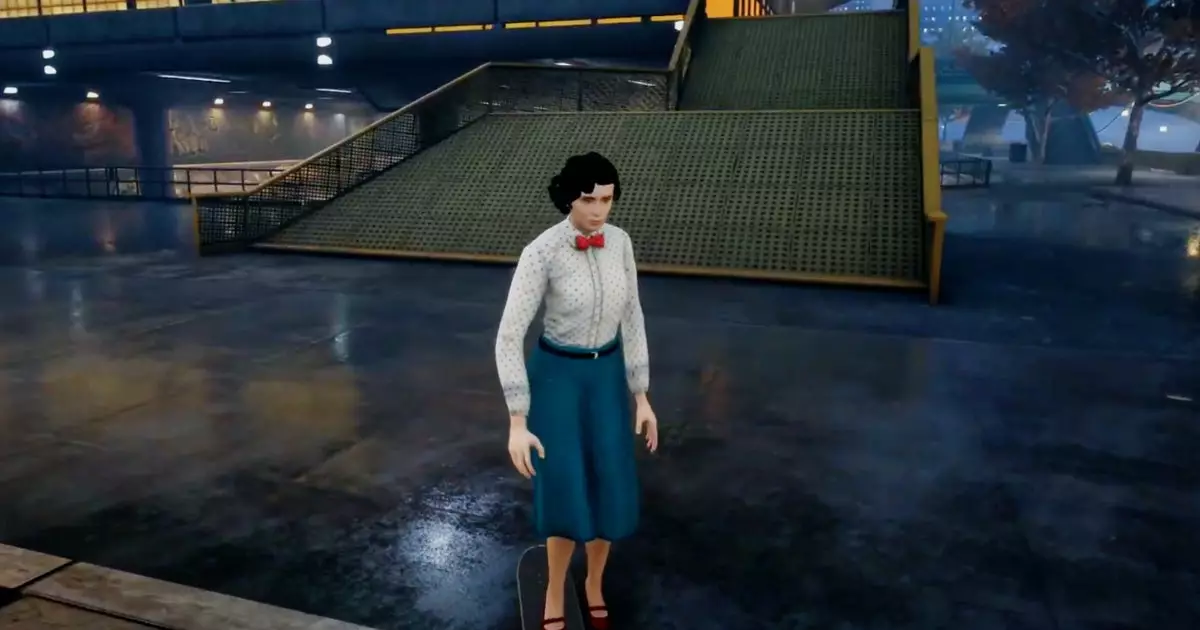Video games have long served as vessels of cultural memory, evoking nostalgia and connection to our childhood favorites. However, the true magic happens when dedicated communities breathe new life into these classics through modding. The recent release of Tony Hawk’s Pro Skater 3+4 not only marks a celebration of the genre’s golden era but also exemplifies how passionate fans can transform a nostalgic experience into a canvas of limitless creativity. By introducing a plethora of character skins, gameplay tweaks, and imaginative crossovers, modders are tearing down the rigid boundaries of the original design, effectively turning a straightforward skateboarding game into a vibrant playground of artistic expression. This phenomenon isn’t just about superficial customization; it’s about redefining the relationship between players and their beloved titles—empowering users to become co-creators and storytellers.
From the Literal to the Absurd: The Impact of Character Swaps
One of the most striking aspects of the current modding scene is the seemingly boundless array of character transformations. Modder Huckleberrypie, known for their prolific output, has populated the game with eccentric and unpredictable skins that span a wide cultural spectrum. Imagine tossing Tommy Angelo from Mafia into a game about street tricks, or swapping Elsa from Frozen into a skate session—an act that simultaneously emphasizes the absurd and celebrates the cultural mashup potential inherent in modding. These alterations are more than just visual gimmicks; they reflect a playful counterpoint to the often rigid expectations of game design. By inserting characters like CJ, Tony Soprano, or even Mary Poppins into a skatepark, modders challenge the boundaries of narrative continuity, blurring the lines between disparate worlds and encouraging players to see their favorite characters in new, unexpected contexts. This kind of creativity showcases how modding transforms passive consumption into active engagement and even social commentary.
The Power of Narrative in Modding Culture
What truly sets these mods apart from superficial edits is the storytelling they sometimes embrace. In particular, Huckleberrypie’s Mary Poppins mod exemplifies this beautifully. Here, Mary—an icon of childhood innocence—becomes a rebellious skateboarder with a backstory that stretches the imagination. She’s depicted as returning from a family crisis, seeking solace in rock music and skateboarding—a narrative tangent that adds depth and humor to the player’s experience. Such storytelling elevates the mod from mere visual novelty to a piece of interactive art with a personality. It also highlights a crucial aspect of modding: the democratization of storytelling. Anyone can craft a backstory, a character arc, or a concept that resonates personally, turning the game into a collaborative narrative universe where players are more than just consumers—they are co-authors. This reflects a broader shift in gaming culture toward user-generated content as a primary mode of value creation.
Modding as a Reflection of Cultural Flexibility and Innovation
The current wave of mods for Tony Hawk’s Pro Skater 3+4 transcends simple customization; it becomes a statement about the endless possibilities of gaming as an art form. Porting mods from previous versions, adding features like free roam cameras, or integrating outlandish characters like Master Chief on a mini-tank exemplifies the fearless experimentation that defines modern modding communities. Each new addition pushes the boundaries of what’s possible within a game’s ecosystem, transforming it into a living, evolving work of participatory art. Moreover, these modifications serve as a testament to how gaming culture increasingly embraces hybridity—blending genres, cross-pollinating icons, and celebrating heterogeneity. This openness fosters innovation, inspires new creators, and ultimately sustains gaming’s relevance in an ever-evolving digital landscape. Engaging with this scene reminds us that games are not static artifacts—they are fluid, adaptable, and deeply community-driven.
In Defense of Creative Chaos
At its core, the proliferation of mods is a testament to the human desire for creative freedom. Far from undermining the integrity of the original product, these modifications expand its lifespan and relevance by inviting active participation. They turn passive entertainment into a platform for humor, satire, social commentary, and personal expression. The question of whether Mary Poppins could have skated a 900 degree spin “before Tony Hawk” may be playful nonsense, but it encapsulates a profound truth: in the realm of modding, anything is possible, and ordinary rules do not always apply. For those who view this scene as trivial or chaotic, it’s worth reconsidering the value of creative exploration—because in the chaos of mods lies the seed of future innovation, storytelling, and cultural commentary. The community’s willingness to experiment and redefine boundaries not only keeps these classic games relevant but also exemplifies the vibrant, rebellious spirit that has always driven gaming forward.

